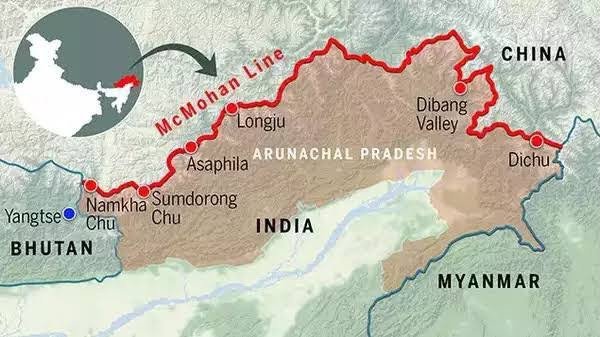India lodges strong protest against China’s territory claims on new map

India has formally raised a vehement objection against China’s recent unveiling of a map that purportedly lays territorial claims to parts of India. The map, released by China’s Ministry of Natural Resources, has drawn controversy by asserting China’s ownership over the north-eastern state of Arunachal Pradesh and the disputed Aksai Chin plateau.
Indian authorities have swiftly expressed their disapproval, with India’s foreign ministry spokesperson, Arindam Bagchi, stating, “We reject these claims as they have no basis.” He further emphasized that China’s actions only serve to complicate the ongoing boundary issue resolution. China has yet to issue an official response.
Foreign Minister S Jaishankar echoed these sentiments, branding China’s claims as “absurd.” He pointed out China’s past tendencies to lay territorial claims that belong to other nations, labeling it an “old habit.”
This protest by India comes shortly after Prime Minister Narendra Modi and Chinese President Xi Jinping held discussions during the Brics summit in South Africa. After the summit, an Indian official revealed that both leaders agreed to intensify efforts for quick disengagement and de-escalation along the disputed border.
Tensions between the two nations have repeatedly escalated due to China’s persistent territorial assertions. The heart of the dispute lies in the approximately 3,440km-long de facto border along the Himalayas, known as the Line of Actual Control (LAC), which remains ambiguously demarcated due to geographical features like rivers, lakes, and snowcaps.
The LAC’s fluid nature has led to face-offs between soldiers from both sides at various points, often triggering conflicts. The most recent clash occurred in December, when Indian and Chinese troops clashed in the town of Tawang along the border.
China asserts its sovereignty over Arunachal Pradesh, referring to it as “South Tibet,” a claim categorically rejected by India. In turn, India claims the Aksai Chin plateau, which is under Chinese control.
In April, India reacted strongly to China’s renaming of 11 locations in Arunachal Pradesh, reaffirming the region’s integral status within India. The bilateral relationship between India and China has deteriorated since 2020, marked by a deadly clash in the Galwan valley in Ladakh. This confrontation was the first lethal encounter between the two nations since 1975.







